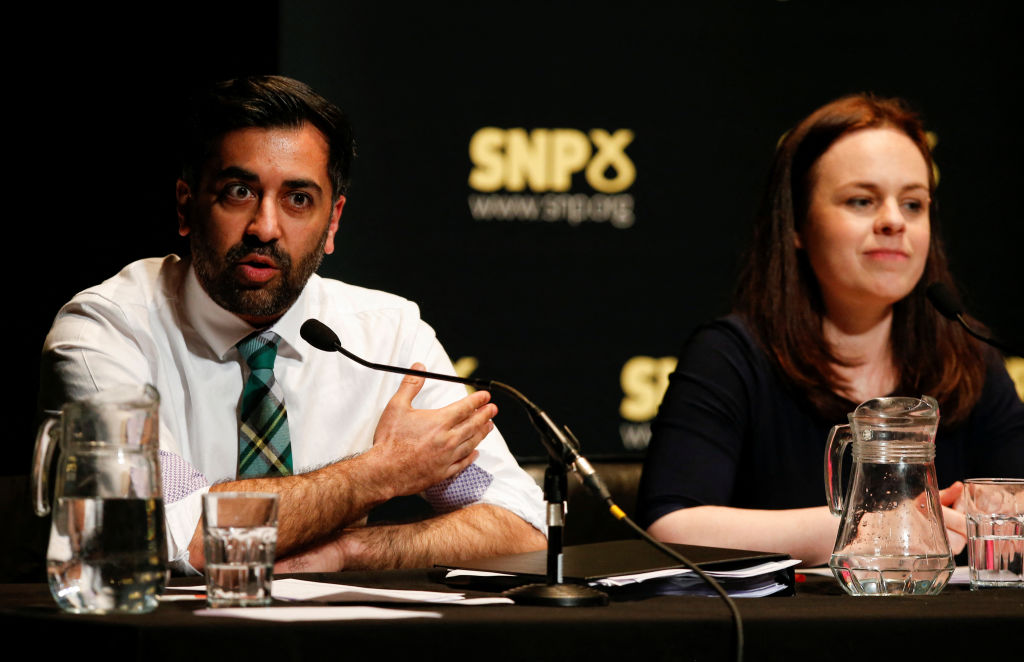Five weeks ago, Kate Forbes’ leadership campaign looked to be dead and buried. She had set her campaign on fire, Scottish political commentators said, by launching her socially conservative views on gay marriage on the nation. Today, despite the widespread opprobrium by her party colleagues, nearly half of the SNP membership voted for her to be their leader, and the country’s First Minister. Over half, though, voted for Humza Yousaf, and tomorrow he will be elected as Scotland’s First Minister. What then?
Perhaps Yousaf can use the closeness of this result to his advantage. The so-called ‘best of both worlds’ is much sought after in politics and this may now be available to him. He has been elected in the knowledge that nearly half of his party wanted a radical departure from the leftist consensus that has characterised the Nicola Sturgeon era – the very agenda he has pledged to continue. Instead, 48 per cent of voting members voted for a focus on economic growth and reform of the public services.
Not only that, but Yousaf also knows that polling showed Forbes was consistently the pick of the country, which, of course, did not have a vote in this particular election. Can he harness this as a positive? Perhaps there is a tactical move to be played here: were I advising Yousaf, I’d suggest to him that he ask Forbes to serve as his Deputy First Minister and Cabinet Secretary for Economic and Public Service Reform.
Why? Firstly, it would help unite a party which has been revealed to be far more split than originally thought; the cracks exposed by this high-magnitude political earthquake of a leadership race. Secondly, Yousaf will know that there are serious problems in the relationship between the government and the small-to-medium-sized community which provides Scotland’s economic foundation – and he'll be aware that Forbes is best placed to fix them.
Forbes may have had the will to change the weather, but it is generally the case that those from the centre or centre-right lack the consent: major change is easier to achieve from the left. And conversely, as a man of the left himself, Yousaf comes with the implicit consent to do necessary and difficult things to public services and the economy. If he has the will, he can exercise it through Forbes. Not only will he ensure he gets the job done but he will give himself a buffer in the process.
There is, of course, a large Green elephant in the room. Scotland’s Greens are well to the left of other Green parties around Europe, including in England and Wales. They are also antipathetic to economic growth and do not wish to see any alteration to the basic structure of health and education. This is where Yousaf can show his strength. This is not supposed to be a partnership of equals, and it is to the great credit of the Greens, a party which polled a mere eight per cent at the last election, that they have leveraged such enormous policy influence across portfolios in the last 18 months.
If Yousaf can incorporate the Forbes squad, pacify the Green brigade and make the man and woman in the street take a second look, then his first 100 days may be able to be judged a roaring success.






Comments